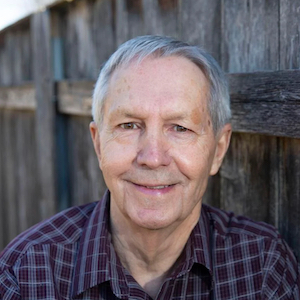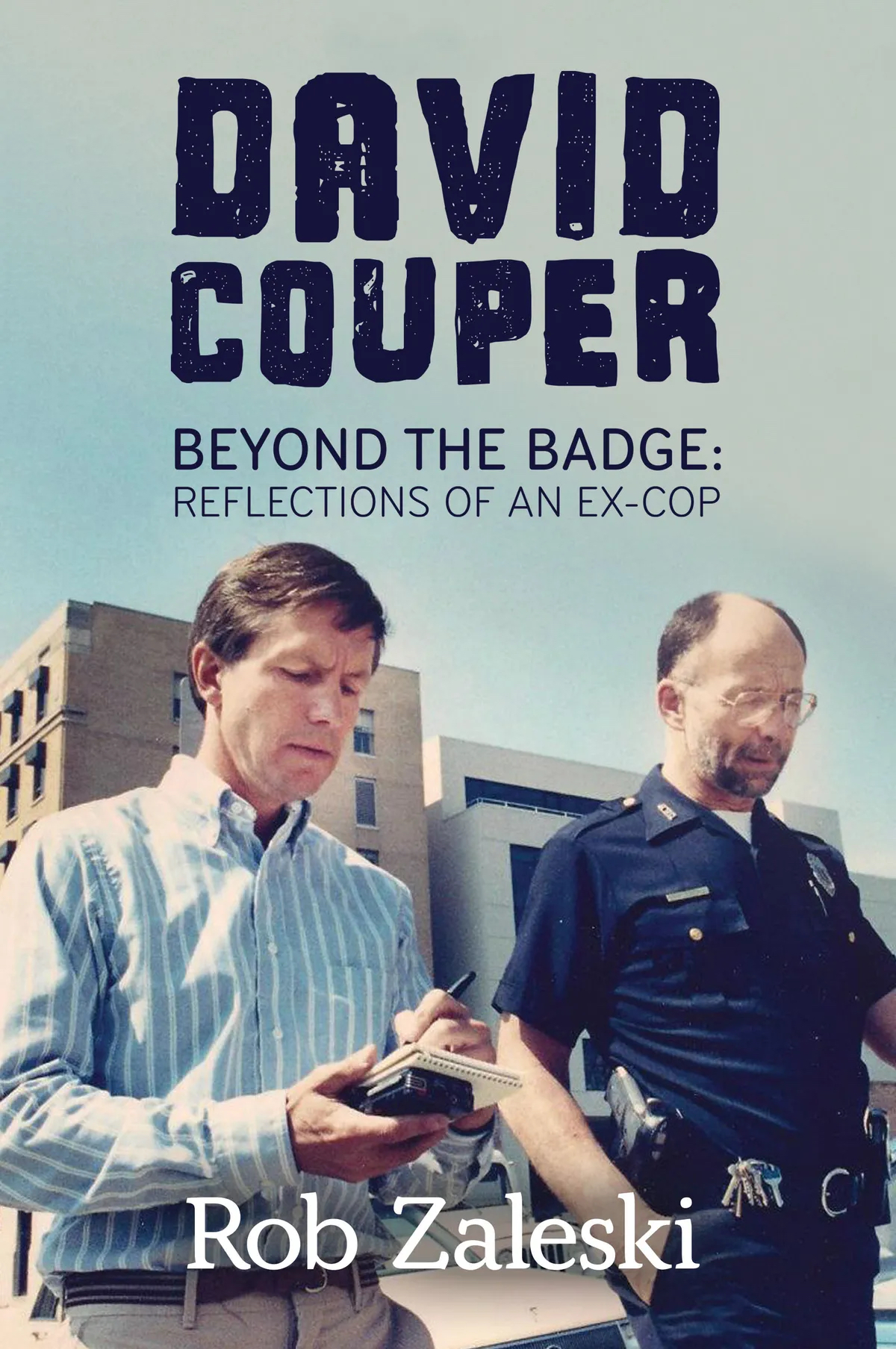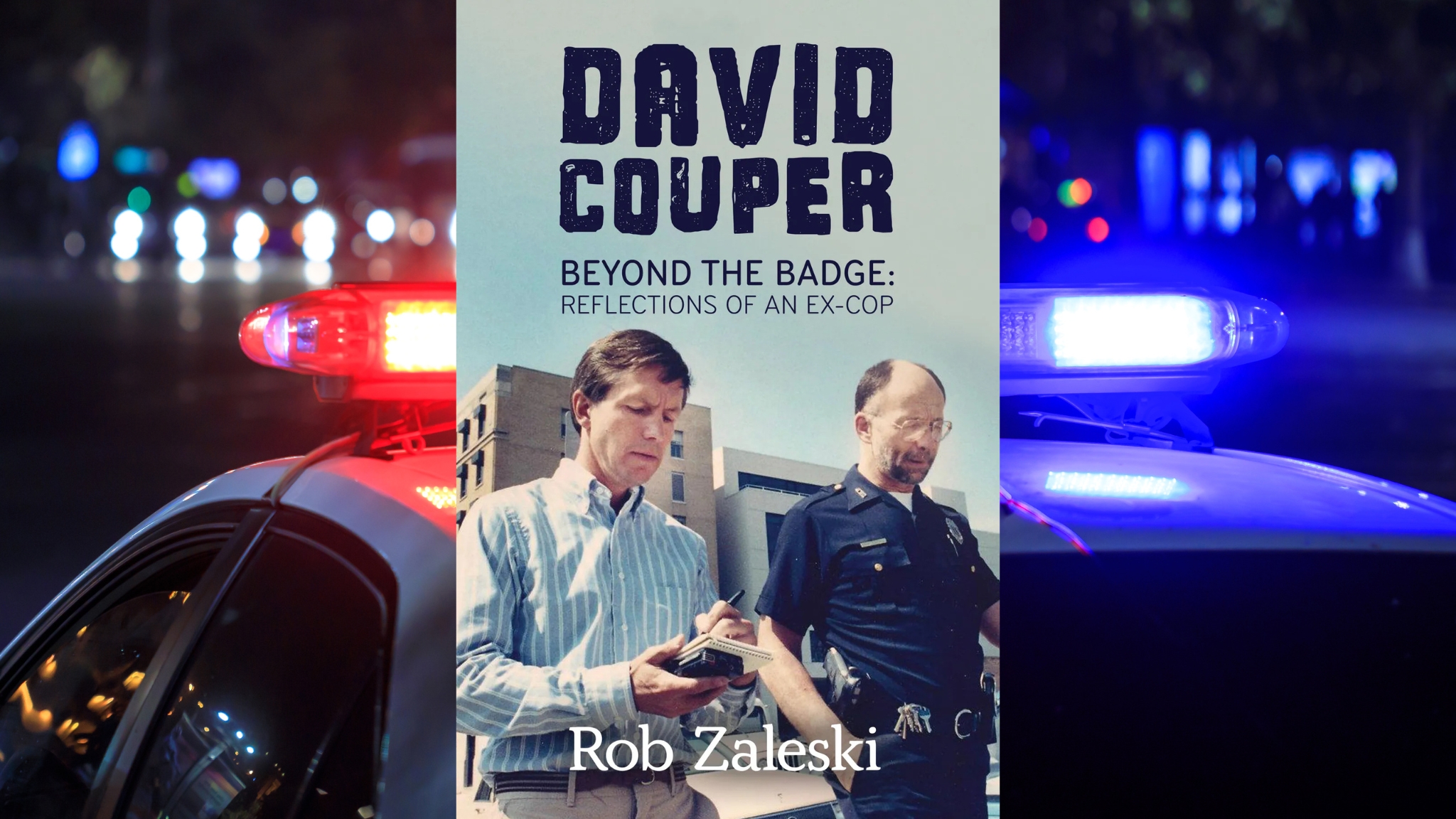David Couper: Beyond the Badge by Rob Zaleski
What's It About?
When he stepped down in 1993 after 21 contentious, but highly successful years as the police chief in ultra-liberal Madison, Wisconsin, David Couper was widely regarded as one of the most influential law enforcement officials in Wisconsin’s history. But little was known about his private life — or what motivated him to transform a paramilitary-type department into one that emphasized community relations.Unless you’ve been around Madison, Wisconsin, for a long time, or maybe you’re concerned about policing in America in these crazy days, you’ve likely never heard about a former Marine and police chief who became an Episcopal priest. His name is David Couper, and he has a lot to say.
Author-journalist Rob Zaleski adopted a question-and-answer format for David Couper: Beyond the Badge (Little Creek Press). The format allows Zaleski to open a window into not just the ideas but the soul of a fascinating guy.
Even if you don’t agree with Couper’s (and Zaleski’s) generally left-leaning views, Couper’s warts-and-all personal story offers fresh perspectives on everything from law enforcement to politics, leadership, religion, and what it takes to rebound from bad decisions and personal tragedies such as failed marriages and the deaths of children.
Unique Look at Socially-Conscious Policing
Couper describes himself as a “police chief, poet and social activist” on his website. At age 34 in 1972, he became a surprising choice for police chief in Madison, home to the state capital, the University of Wisconsin and a history of student activism and radical politics.
He lasted for 21 years, finally stepping down to enter the priesthood. Couper talks candidly about successes and shortcomings in his efforts to change an old-school police department that had a confrontational approach to the public with few women and minorities in the ranks. Along the way, he became a nationally recognized expert in progressive police strategies. He’s much more about changing police departments than “defunding” them.
Q&A With Feel of a Dialogue Between Friends
You should set aside notions that Zaleski’s Q-and-A approach might run out of steam in the length of a book. Really, it’s more of a dialogue between two friends. Beyond the Badge reminded me of the iconic 1981 film, My Dinner With Andre, that you might dismiss as unwatchable if all you knew was that it was nothing but two people talking at a restaurant table for 111 minutes.
“Andre” held audiences spellbound thanks to great dialogue and the work of two fine actors, Wallace Shawn and Andre Gregory. Zaleski and Couper have a long-term, respectful relationship, and the chemistry shows.
Here’s Couper talking about what led him from his childhood in Minnesota to the Marines and a career in policing:
“I mean, the reason I became a cop was because I wanted to be a good police officer and help people, which is the same attitude I had when I joined the Marines. But looking back, I realized my job was primarily to make sure poor people and Black people didn’t bother white people.
So, I’ve got to ask myself, after being a cop for 33 years, ‘What was I really there for?’ I tried to be there for everybody. And I’m hardly a perfect guy, but I give it my best shot.”
And here’s Couper’s take on Donald Trump, from his perspective as a religious leader:
“You know, I’d be delighted to have Donald Trump come into my little church in North Lake (Wis.). I mean, it might be a little crowded. But it would be a good time to do some cross-examination with him.
I’d say, ‘Donald, I’ve heard you say things that trouble me …. Because Donald, if you’re a follower of Jesus, you wouldn’t want to do that. Because Jesus wouldn’t be happy with that. Jesus would say, ‘This is not acceptable’.”
Growing Towards a Better Future for America
Memoirs involving people in the late chapters of their lives are plentiful – to say the least. It would have been predictable for Couper, now in his 80s, to come across as your crotchety, “get-off-my-lawn” neighbor who thinks the world has gone to hell. Couper, like many of us, is scared about where America might be going, but he’s no nostalgic apologist for the past. Better, he says, to learn from where you’ve been as a person, a leader and a citizen.
In Beyond the Badge, you’ll meet a man filled with ideas whose curiosity, wisdom and drive to make the world a little better than the way he found it remains intact. That’s not a bad legacy.
Full disclosure: I worked with Zaleski when he was a columnist and I was managing editor of The Capital Times in Madison from 1986-1990. I only knew Couper in passing, though I was particularly fascinated by his efforts to apply the “total quality management” principles championed by the late W. Edwards Deming to a police agency while we were trying to do the same thing at a daily newspaper. That’s a story for another day.
About Rob Zaleski
 Rob Zaleski is a freelance writer and award-winning columnist. He spent 26 years with The Capital Times in Madison and often wrote about David Couper when he was police chief. Prior to that, Rob was a reporter/sportswriter at United Press International’s Madison bureau. He also worked at the Milwaukee Journal, the Fort Myers News-Press in Florida, the Idaho State Journal in Pocatello and the Green Bay Daily News. He has authored the novel Searching for Sal and a nonfiction book, Ed Garvey: Unvarnished. His work has appeared in Madison Magazine and Isthmus.
Rob Zaleski is a freelance writer and award-winning columnist. He spent 26 years with The Capital Times in Madison and often wrote about David Couper when he was police chief. Prior to that, Rob was a reporter/sportswriter at United Press International’s Madison bureau. He also worked at the Milwaukee Journal, the Fort Myers News-Press in Florida, the Idaho State Journal in Pocatello and the Green Bay Daily News. He has authored the novel Searching for Sal and a nonfiction book, Ed Garvey: Unvarnished. His work has appeared in Madison Magazine and Isthmus.





